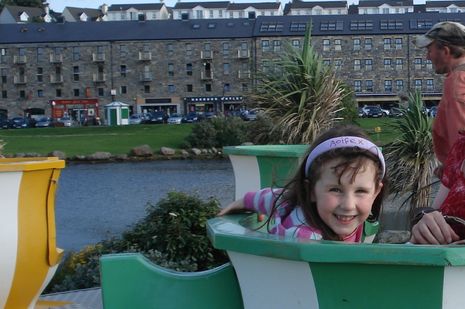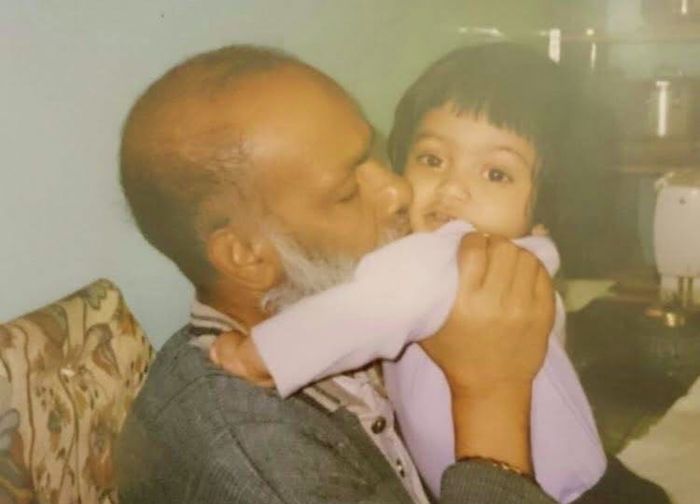Putting a name to it
Senior Features Editor Aoife O’Driscoll explores the importance of names, looking back at her experiences with an unusual name and sharing how she has come to embrace it

I’m used to hearing my name wrong before I hear it right. Most introductions I have with people begin with the need to explain – and sometimes, literally spell out – this part of my identity. I can’t really blame anyone for this: the unusual cluster of vowels split by a single ‘f’ is clearly not what most would envision could create the pronunciation ‘eefa’. Yet, because of this, I have heard every possible variation of ‘Aoife’. Every appointment, new class, or job interview is punctuated by a quick correction – and usually some attempt at a justification. I find myself telling people, “Sorry, it’s Irish”, as if in some way finding fault in the culture it originates from, and almost feeling guilty for forcing others to confront the ‘otherness’ of it.
“I was sick of the flush of embarrassment that came over me every time I had to confront a new teacher”
Growing up, I always had an idea that my name was in some way ‘different’. Though this started by simply being unable to find it in the personalised names section of every gift shop, it quickly progressed as I came to the realisation that with every new person I met, more often than not I would have to explain my name to them. I began to harbour a kind of resentment against it. I was sick of the flush of embarrassment that came over me every time I had to confront a new teacher, the stinging ache that accompanied each misspelt certificate, making me feel as though the award didn’t truly belong to me, and the knowledge that this was a lifelong curse. I would join in with joking about it, telling people to “blame my parents” when they asked me why it was so strange. There was nothing I wanted more than to isolate myself from everything unconventional about it.
The name Aoife is common in Ireland, often reaching the top ten or twenty in popularity each year. If I lived there, I would have no trouble with spelling or pronunciation – my issue would more likely lie in being one in too many Aoifes. Yet just a short distance away in England, my parents’ decision to hand me a pre-made manifestation of half my heritage has left me in the complete opposite scenario. Being given one unusual name at birth has meant that I’ve been assigned countless others over the years in the spur-of-the-moment judgement that people face when they see it. Attempts have been made to assist me with this – shortly after I was born, someone gave me a puzzle with my name on, allegedly because they were convinced I would never be able to grasp how to spell it. It sat on the top of my bookshelf for years, and I would often find myself taking it down, pulling the pieces apart and neatly slotting them back together. Completely unaware of the intentions behind it, I was content to own something personalised, and to be able to repeat the pattern I’d grown up knowing to be correct time and time again. I have never been confused over how to spell my name; just as the puzzle wouldn’t fit if it was put in any other order, so too has the correct spelling always felt ‘right’ to me.
“the best thing I can do is start to take pride in my name”
Why, then, is there so much confusion surrounding my name? A lot of it stems from general misunderstanding about the Irish orthography, or spelling system. Whilst English is the most spoken language in Ireland now, ‘Aoife’ reflects the Irish language, which uses different ways to represent sound. In Irish, the ‘aoi’ combination creates the sound ‘ee’, while the ‘e’ on the end is closer to the English ‘a’. After a lifetime of dismissing my name as odd and unpronounceable, it was strangely cathartic to discover that the issue didn’t lie with the name itself – there was a logical reason behind it. My inability to recognise the diversity of how language can be portrayed was the only thing preventing my understanding. Yet, whilst the Irishness of the name has caused countless miscommunications, unusual spellings on this side of the Irish sea are rarely recognised beyond light-hearted comments. The idea of someone struggling to say ‘Charlotte’ or pronouncing ‘Isobel’ and ‘Isabelle’ differently seems unimaginable. I can’t blame myself or others for not knowing why my name looks like it does – it seems to just be a consequence of the way speaking English in England has caused us to understand how language should look and sound like. It clearly can’t be expected of anyone to have an in-depth knowledge of Irish linguistics; instead, the best thing I can do is start to take pride in my name, and the way in which it differs from the norm.
A name is a simple concept, in the grand scheme of things, but it connects so closely to your identity, to how you define yourself, and the way others think of you. It is attached to you in areas of importance, in documents, and signatures, and passports – but also in smaller moments. We scribble our names over everything: books, clothes, perhaps even walls, sometimes to demonstrate that they belong to us, but perhaps in other ways to show that we belong in this world. For me, the best part about visiting ruins and castles is being able to see the carvings in the walls – remnants of another era, but reminiscent of what we continue to do. When we don’t want to be forgotten, we leave our name so that we might be acknowledged or remembered in some way after we have moved on. I used to want to leave my name behind, but in exploring what it means to be called Aoife, I have grown to embrace it. Now, in writing my name, however big or small, I like being defined through it and known by it. It connects me to part of my heritage, and has allowed me to understand more about language outside the English norm; I am proud to carry the name Aoife.
 News / Clare Hall spent over £500k opposing busway 24 December 2025
News / Clare Hall spent over £500k opposing busway 24 December 2025 Comment / The ‘class’ of Cambridge24 December 2025
Comment / The ‘class’ of Cambridge24 December 2025 News / Caius mourns its tree-mendous loss23 December 2025
News / Caius mourns its tree-mendous loss23 December 2025 Comment / Yes, I’m brown – but I have more important things to say22 December 2025
Comment / Yes, I’m brown – but I have more important things to say22 December 2025 News / Girton JCR publishes open letter expressing solidarity with Palestine25 December 2025
News / Girton JCR publishes open letter expressing solidarity with Palestine25 December 2025










